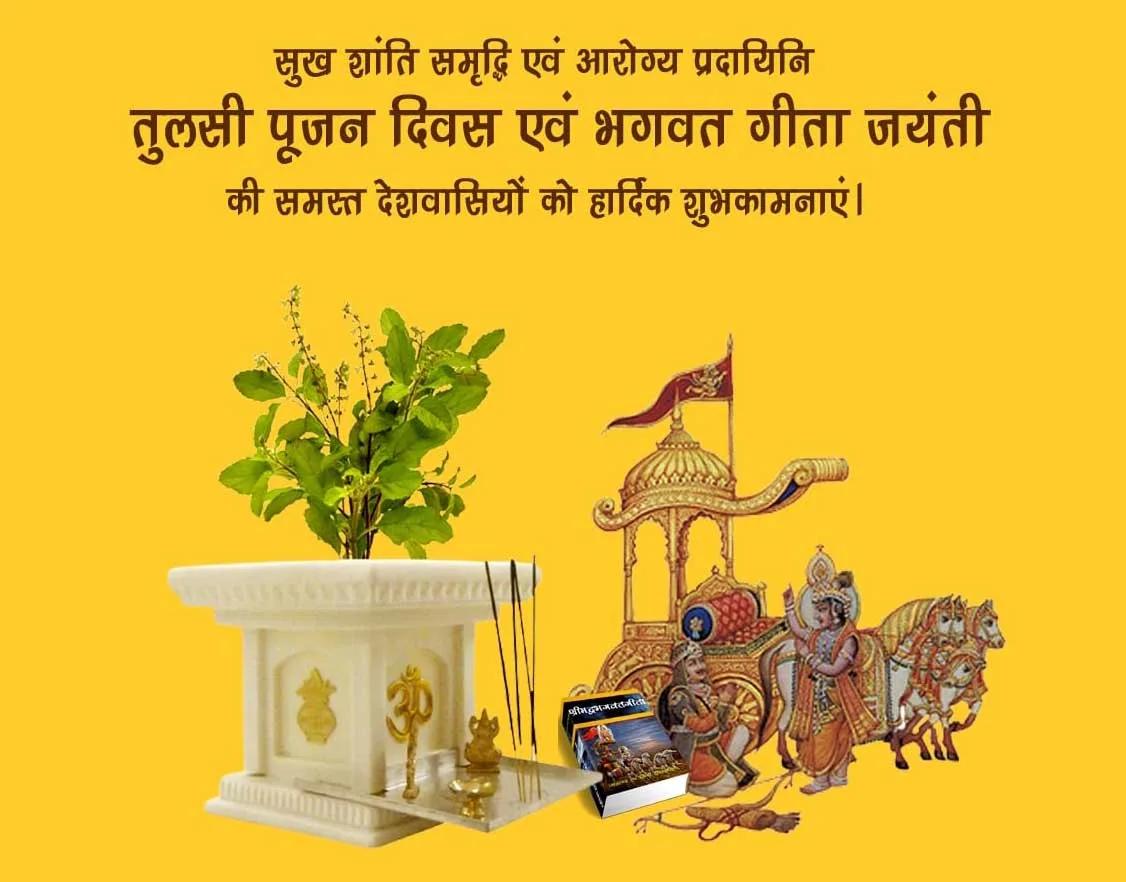HINDU’S CELEBRATION ON 25TH DECEMBER, TULSI PUJAN DIWAS: LATEST INFO UPDATES
Tulsi Diwas, also known as Tulsi Pujan Diwas, is a Hindu festival dedicated to the worship of the sacred plant Tulsi (Ocimum tenuiflorum). This auspicious day falls on the 25th of December every year according to the Hindu calendar. Tulsi, also known as Holy Basil, holds immense significance in Hinduism and is revered for its medicinal, spiritual, and cultural importance.
Significance of Tulsi: In Hindu tradition, Tulsi is considered to be a sacred plant associated with Goddess Lakshmi, the goddess of wealth and prosperity. Tulsi is believed to be an embodiment of the goddess, and its presence is considered auspicious in Hindu households. The plant is not only valued for its medicinal properties but also for its role in various religious rituals and ceremonies.
Rituals and Celebrations: On Tulsi Diwas, devotees perform special rituals to honor and worship the Tulsi plant. The day typically begins with a bath given to the Tulsi plant, followed by the offering of flowers, fruits, and sweets. Devotees often perform aarti (ritual of worship with light) and circumambulate the Tulsi plant, expressing their reverence.
Some traditions involve lighting a lamp near the Tulsi plant to symbolize spiritual enlightenment. The day is also an occasion for prayers and chanting of hymns dedicated to Goddess Tulsi. Devotees believe that observing Tulsi Diwas with devotion brings blessings, prosperity, and spiritual well-being.
Cultural and Medicinal Importance: Tulsi is not only valued for its religious significance but also for its medicinal properties. It is known for its antibacterial, antiviral, and anti-inflammatory properties, making it a popular herb in traditional Ayurvedic medicine. Tulsi leaves are commonly used in teas, herbal remedies, and Ayurvedic preparations to promote overall health and well-being.
Tulsi in Indian Traditions: Beyond religious and medicinal uses, Tulsi holds a special place in Indian cultural traditions. Many households have a Tulsi plant in their courtyards, and the leaves are often used in various culinary preparations. The plant is also associated with folklore and stories that highlight its divine origin and spiritual significance.
While there isn’t a specific shloka (Sanskrit verse) dedicated exclusively to Tulsi Diwas, you can recite a general shloka praising and seeking blessings from Goddess Tulsi. Here is a simple shloka that you can use:
Sanskrit: तुलस्याद्याः प्रसन्नास्मि, तुलस्यास्तु सदा हृदि।
देवि तुलसि मां रक्ष, श्रीपतिर्भव मे सदा॥
Transliteration: Tulasyaadyaah prasannaasmi, tulasyaastu sadaa hridi.
Devi tulasi maam raksha, shreepatirbhava me sadaa.
Translation: “I bow to the Tulsi plant today and forever in my heart. O Goddess Tulsi, protect me, may I always be under the blessings of Lord Shri (Vishnu).”
While there isn’t a specific traditional shloka (verse) exclusively dedicated to Tulsi Diwas, you can incorporate shlokas that praise the virtues of Tulsi or Goddess Lakshmi, with whom Tulsi is often associated. Here’s a general shloka that reflects the reverence for Tulsi:
यामिनी सर्वधर्माणां धरणी संस्थिता तुलसी।
त्वामादर्शनतो भूयात् सर्वपापप्रणाशिनी॥
Translation:
Yamini Sarvadharmāṇāṁ Dharanī Sansthitā Tulasī।
Tvāmādarśanato Bhūyāt Sarvapāpapraṇāśinī॥
Meaning:
“Oh Tulsi, who holds the essence of all virtues and is firmly rooted in the Earth, just by beholding you, all sins are destroyed.”
Feel free to use or adapt this shloka as part of your Tulsi Diwas celebrations or rituals. Additionally, you may consult with a priest or spiritual guide for shlokas that hold particular significance in your specific tradition or community.
Feel free to recite this shloka or modify it as per your preference during your Tulsi Diwas celebrations.
Conclusion: Tulsi Diwas is a celebration that reflects the multi-dimensional importance of the Tulsi plant in Hindu culture. It is a day when devotees express their gratitude and devotion to this sacred plant, seeking blessings for prosperity, health, and spiritual growth. As the fragrance of Tulsi permeates the air on this auspicious day, it serves as a reminder of the rich cultural and spiritual heritage that Tulsi represents in the tapestry of Hindu traditions.
